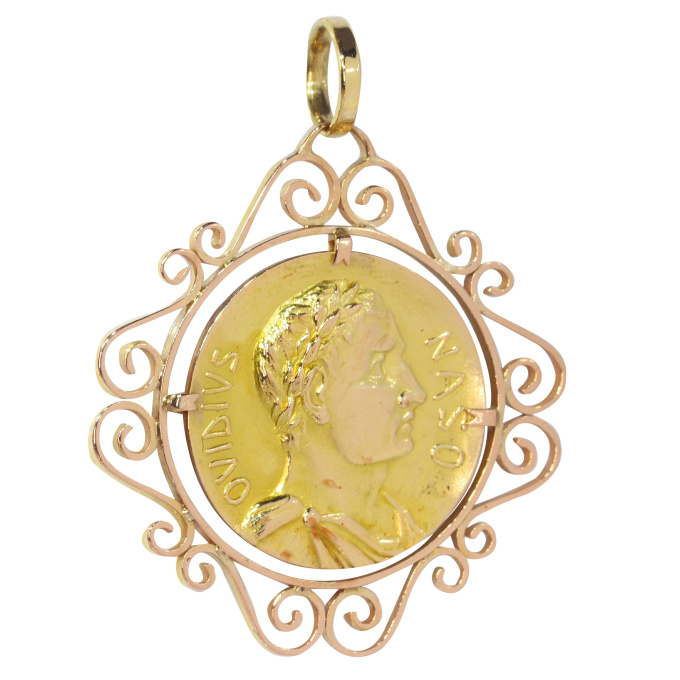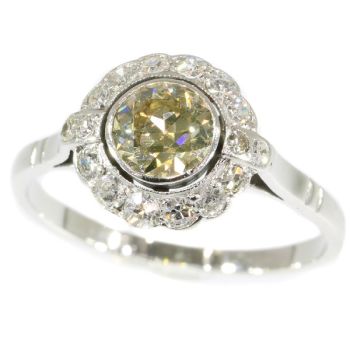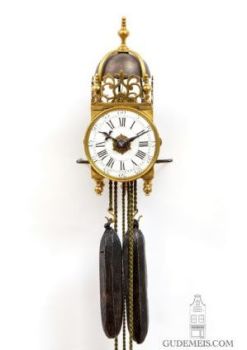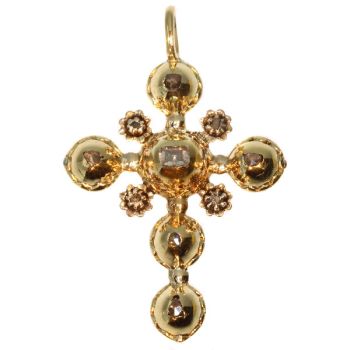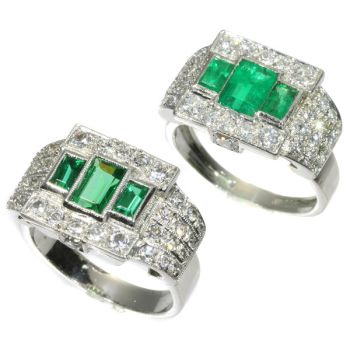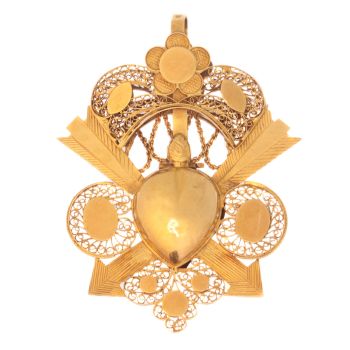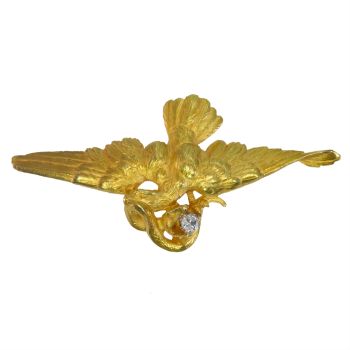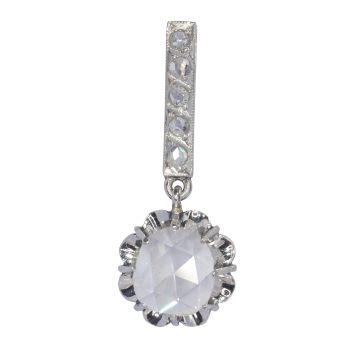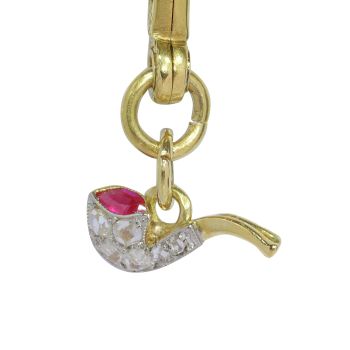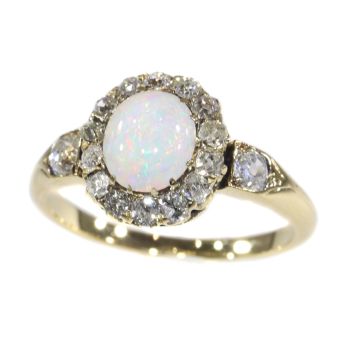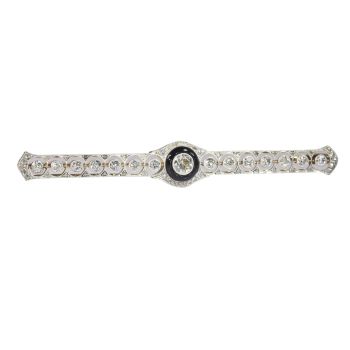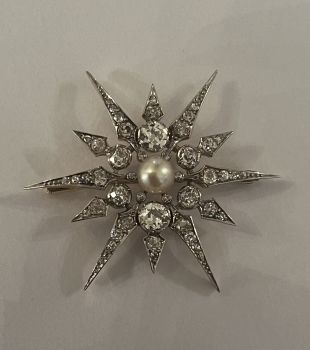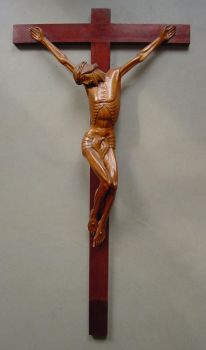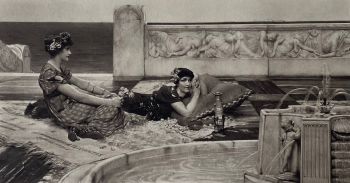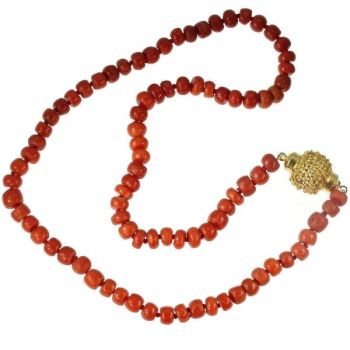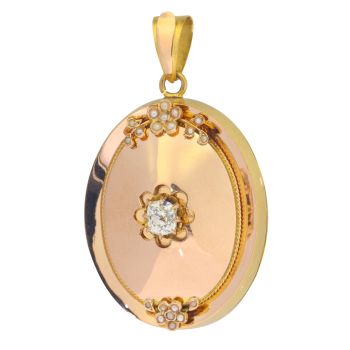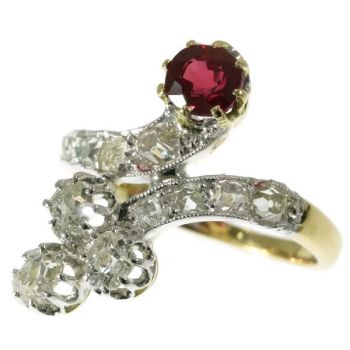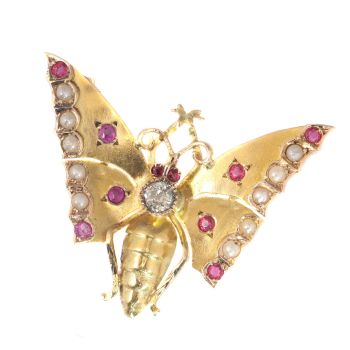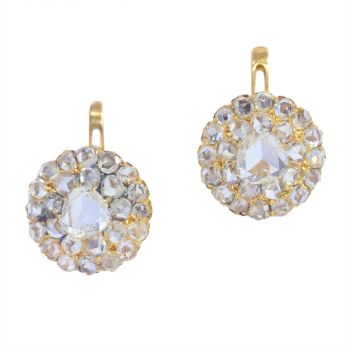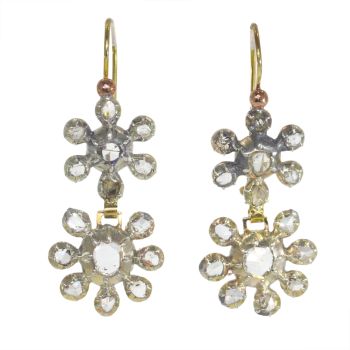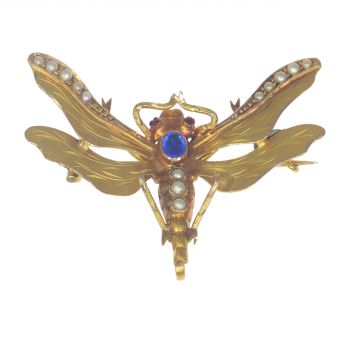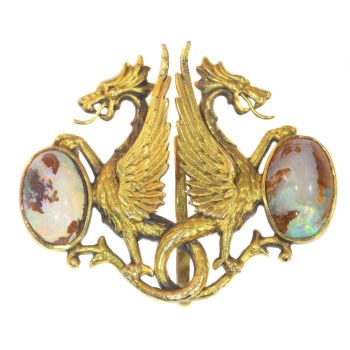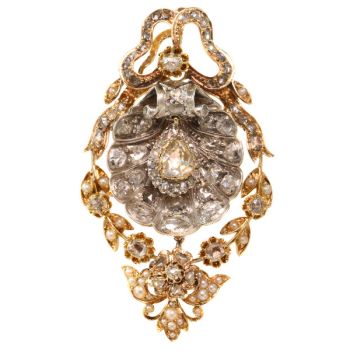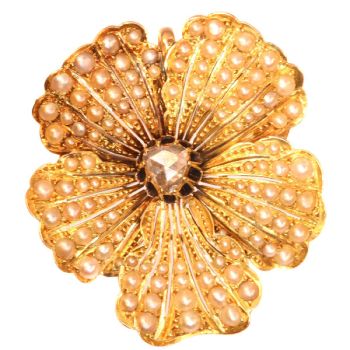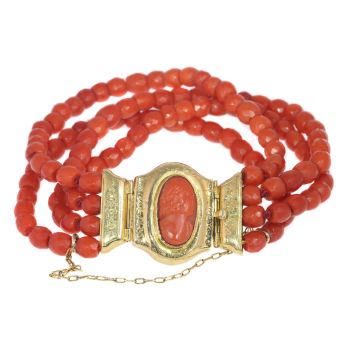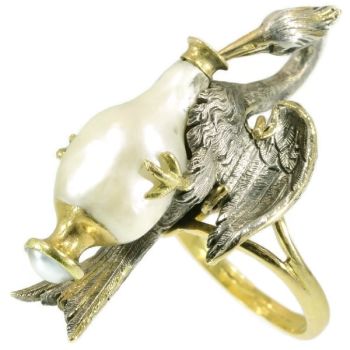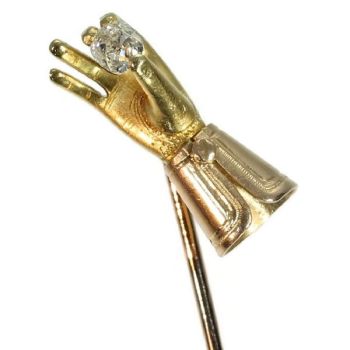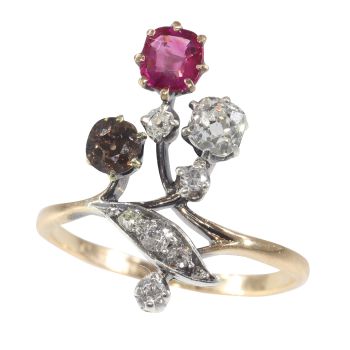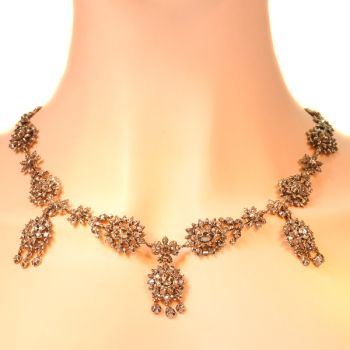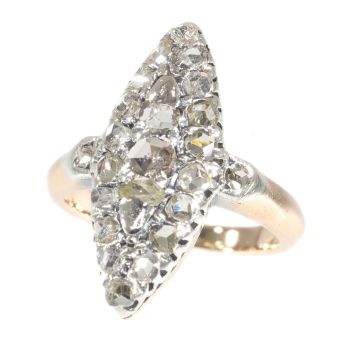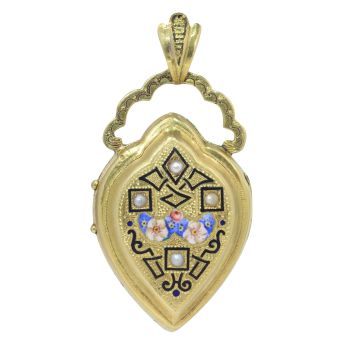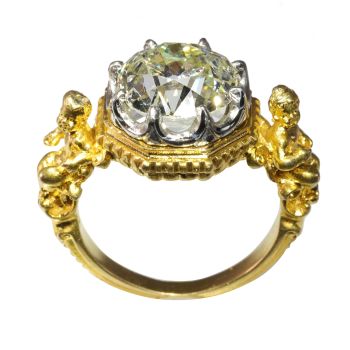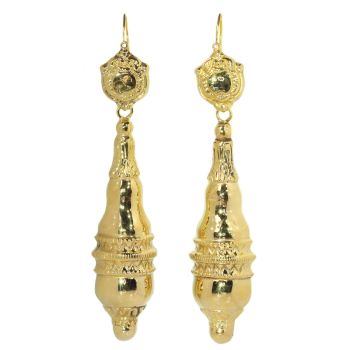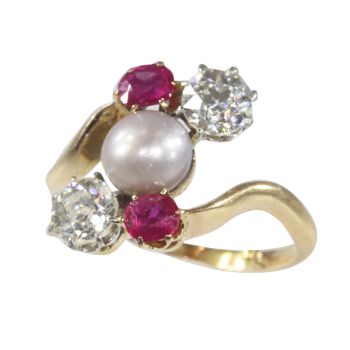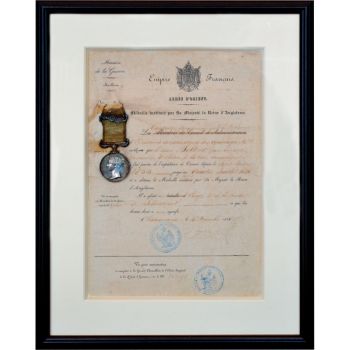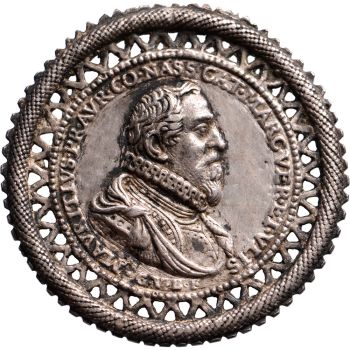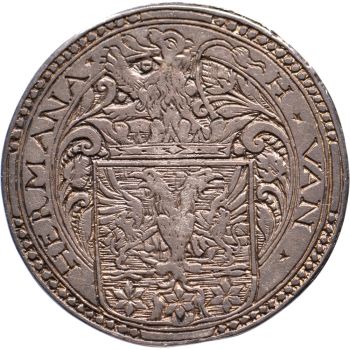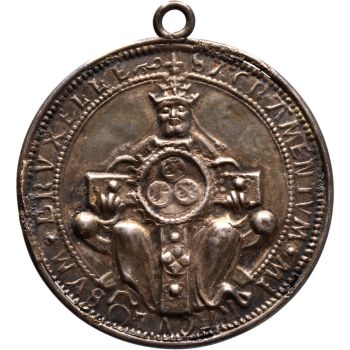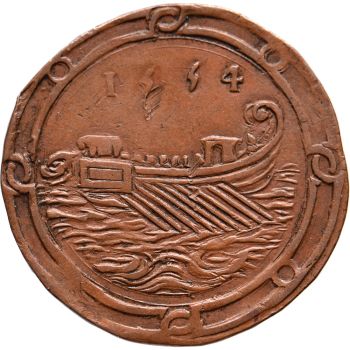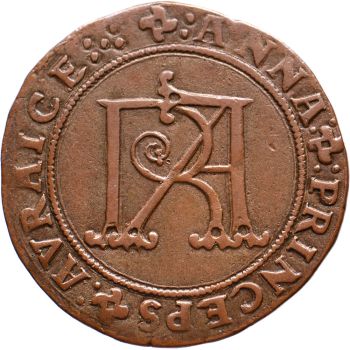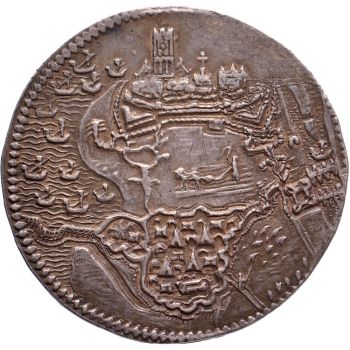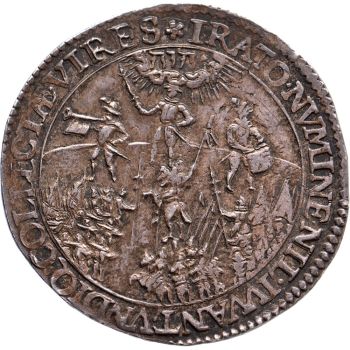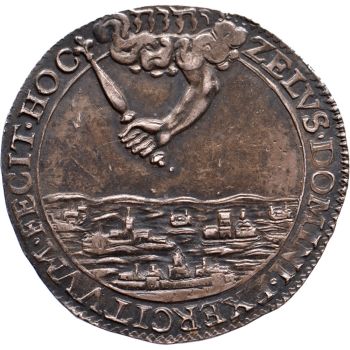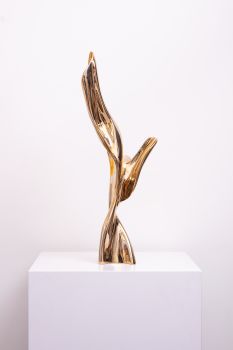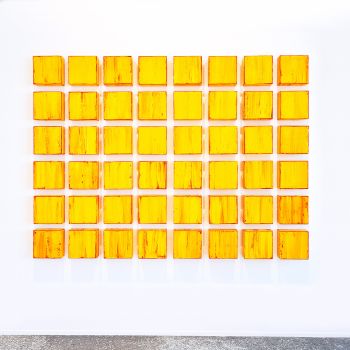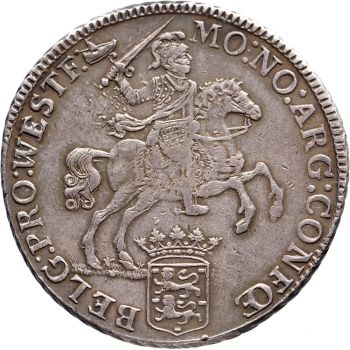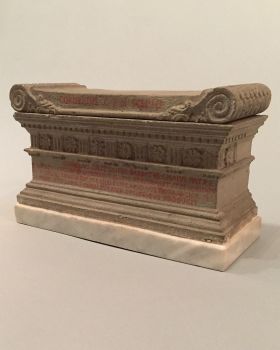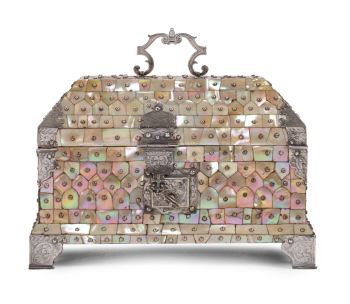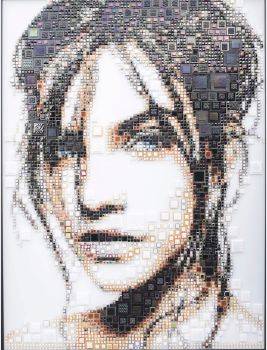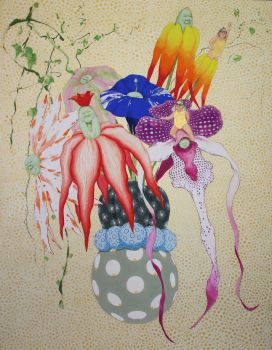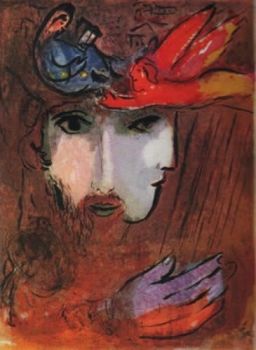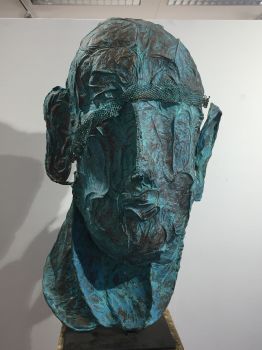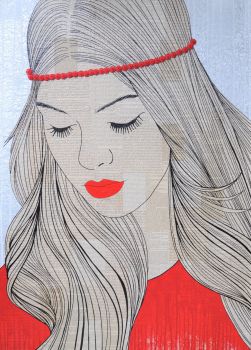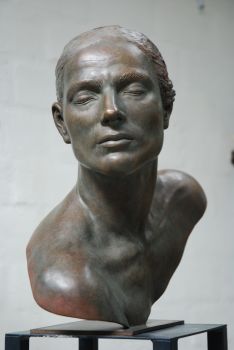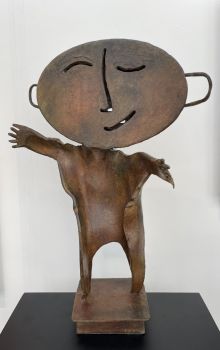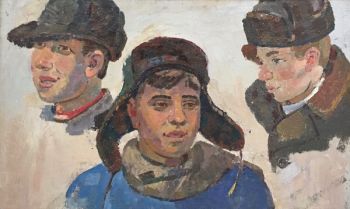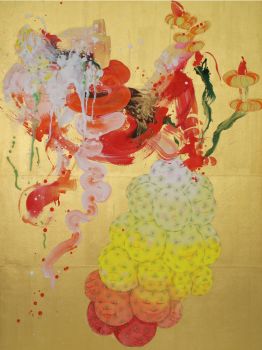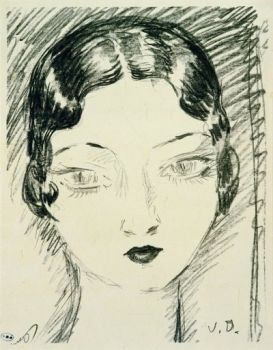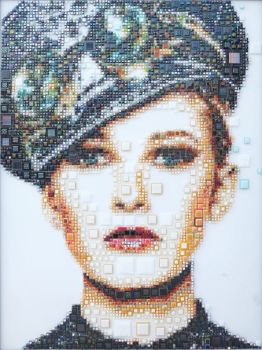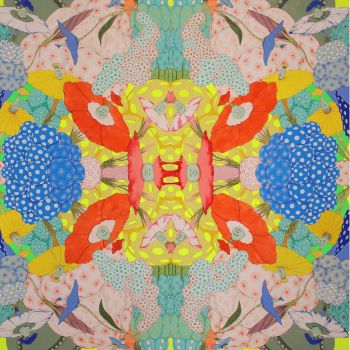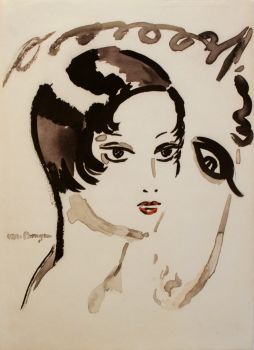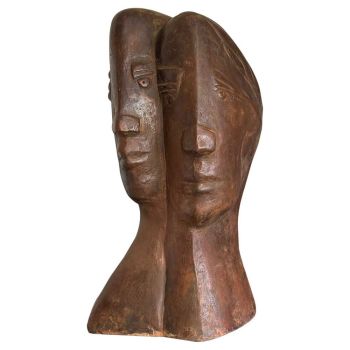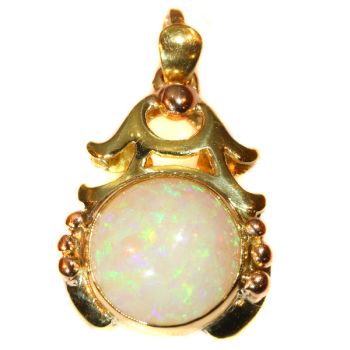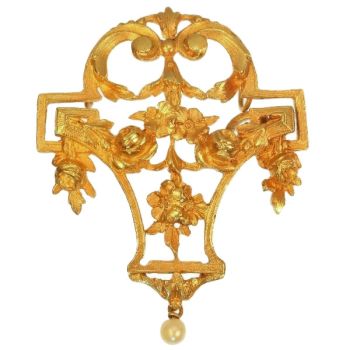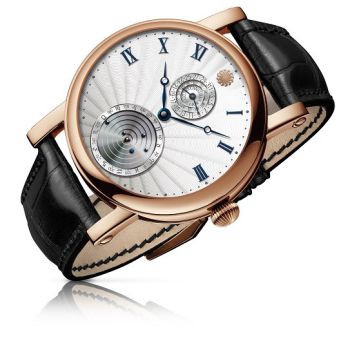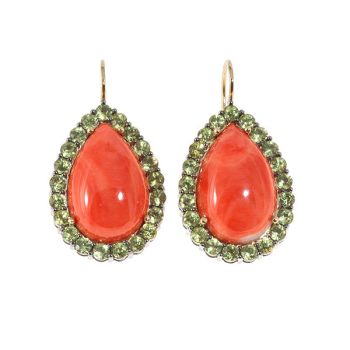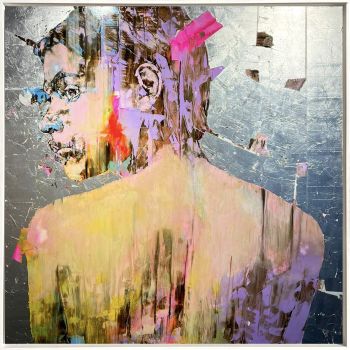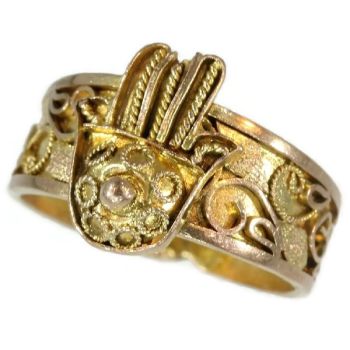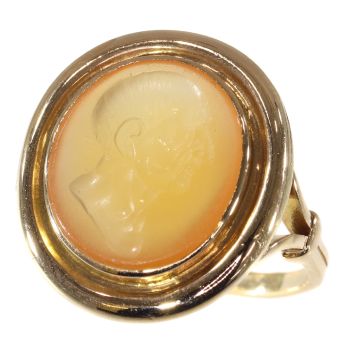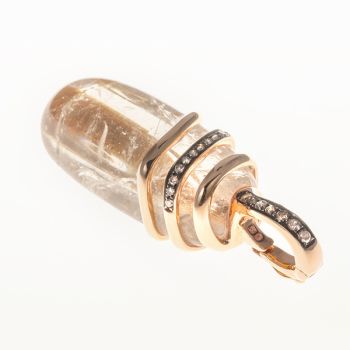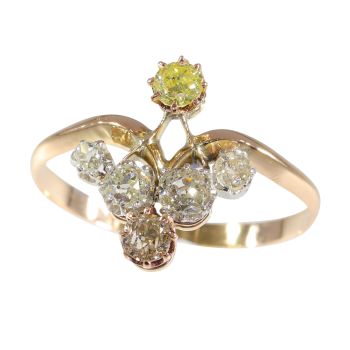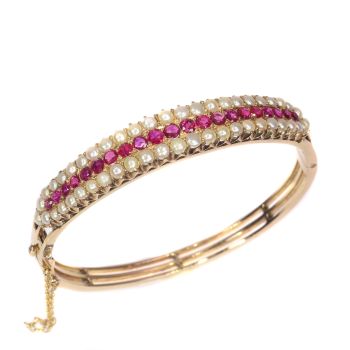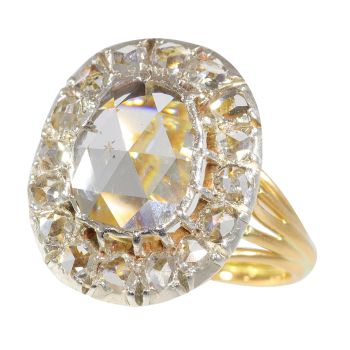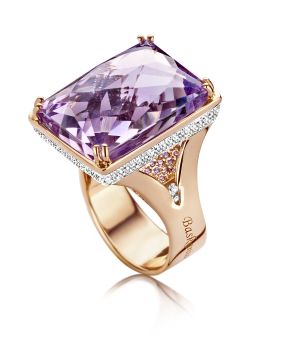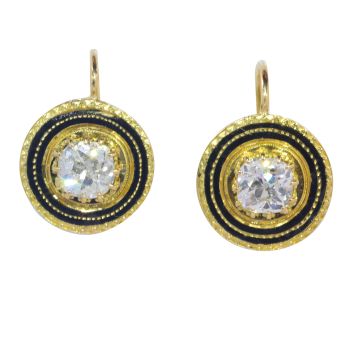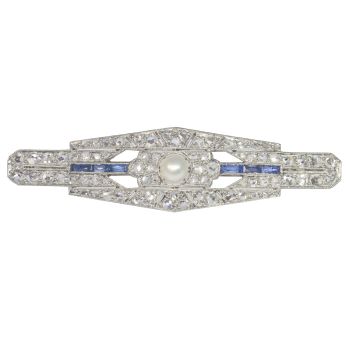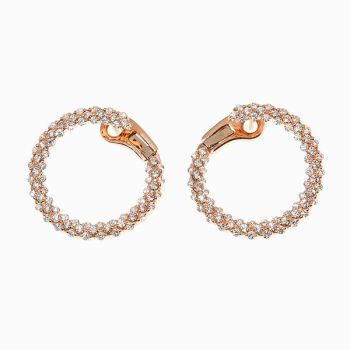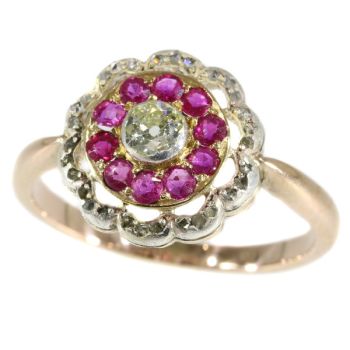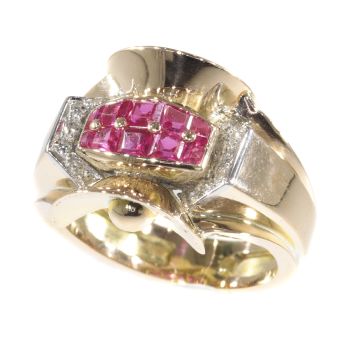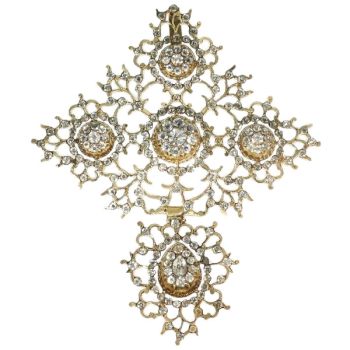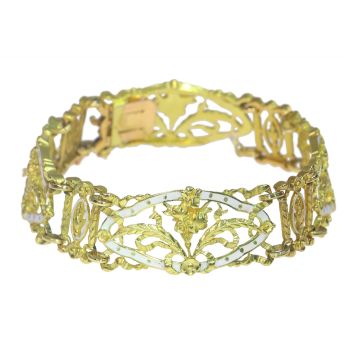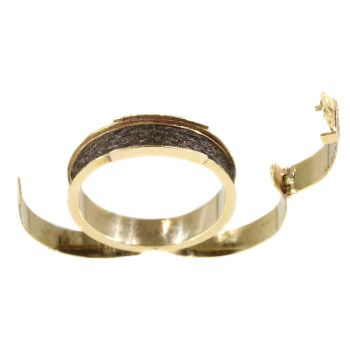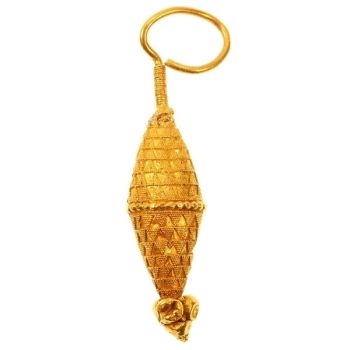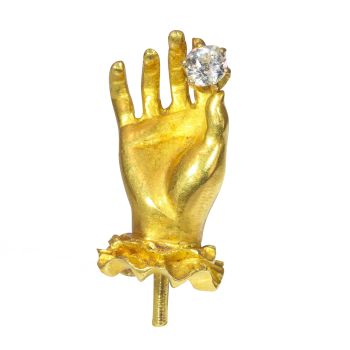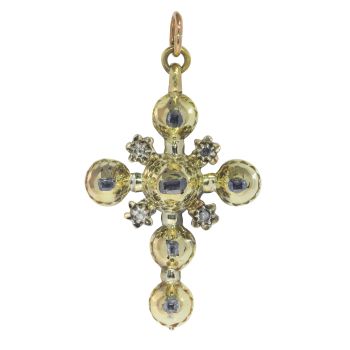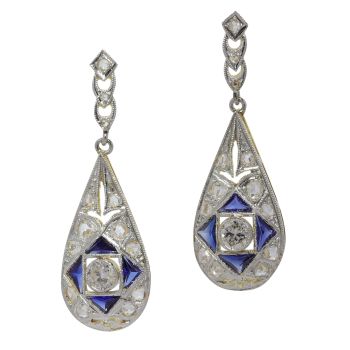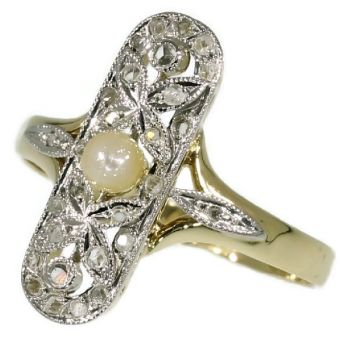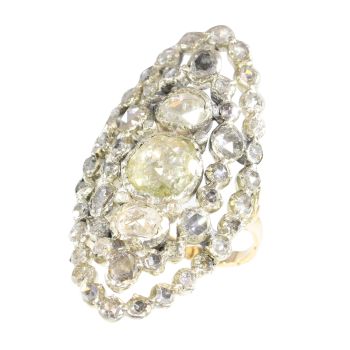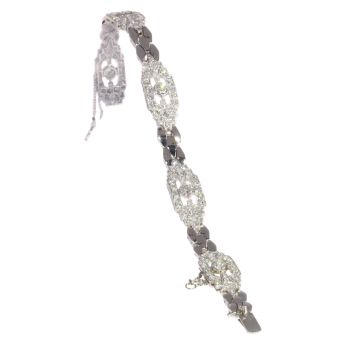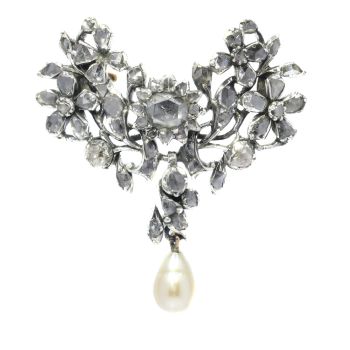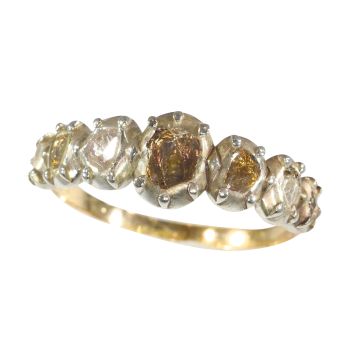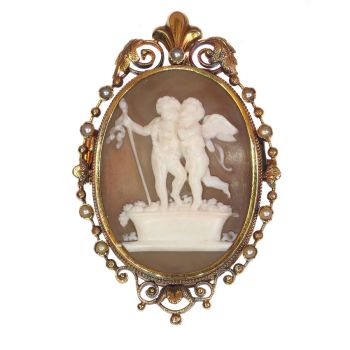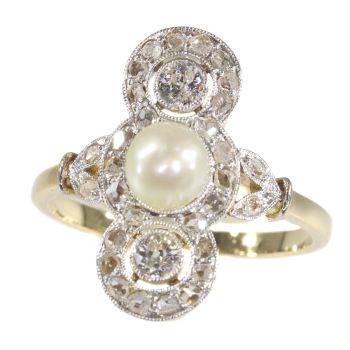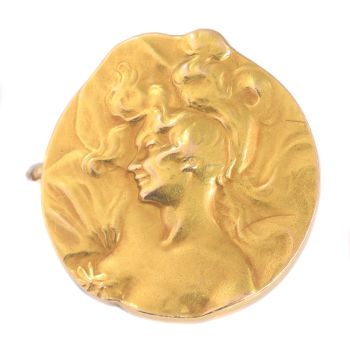Antique gold medal with the face of Ovid, one of the three canonical poets of Latin literature 1890
Artista Sconosciuto
Oro
€ 675
Adin Fine Antique Jewellery
- A proposito di opere d'arte
Antique jewelry object group
pendant
Condition
very good condition
more info on our condition scale
Country of origin
unknown
Style
Late-Victorian - Victorian decorative arts refers to the style of decorative arts during the Victorian era. The Victorian era is known for its eclectic revival and interpretation of historic styles and the introduction of cross-cultural influences from the middle east and Asia in furniture, fittings, and Interior decoration.
Victorian design is widely viewed as having indulged in a regrettable excess of ornament. The Arts and Crafts movement, the aesthetic movement, Anglo-Japanese style, and Art Nouveau style have their beginnings in the late Victorian era.
See also: late-Victorian
more info on styles
Style specifics
The Late or Aesthetic Victorian Period - Experts divide the reign of Queen Victoria, also called The Victorian era (1837-1901) into three periods of about twenty years each; The Romantic Victorian Period (1837 - 1860), The Grand Victorian Period(1860 - 1880), and the Late or Aesthetic Victorian Period (1880 - 1901).
We consider this to be of The Late or Aesthetic Victorian Period.
Jewelry of this period is changing back from heavy to more smaller, romantic pieces with often whimsical motifs. Jewelers using diamonds and bright gemstones in elaborated and fine feminine pieces.
Period
ca. 1890
Events & facts of this era, poetry of this era, fashion of this era.
Source of inspiration
Latin literature
Theme
Ovidius or Publius Ovidius Naso (20 March 43 BC – 17/18 AD), known in English as Ovid, was a Roman poet who lived during the reign of Augustus. He was a contemporary of the older Virgil and Horace, with whom he is often ranked as one of the threecanonical poets of Latin literature. The Imperial scholar Quintilian considered him the last of the Latin love elegists. Although Ovid enjoyed enormous popularity during his lifetime, the emperor Augustus banished him to a remote province on the BlackSea, where he remained a decade until his death.
Material
18K bi-color (yellow and red) gold (touchstone tested)
more info on precious metals
Hallmarks
No trace.
more info on hallmarks
Dimensions
height 3,88 cm (1,53 inch)
see picture with a ruler in millimeters and inches
Weight
4,30 gram (2,76 dwt)
Adin Reference Nº
22286-0143
Copyright photography
Adin, fine antique jewellery
Additional information
our latest acquisitions
jewelry glossary
wall of fame
visit us in Antwerp
subscribe to our mailinglist
- A proposito di opere artista
Può succedere che un artista o un creatore sia sconosciuto.
Alcune opere non sono determinate da chi sono state realizzate o sono state realizzate da (un gruppo di) artigiani. Esempi sono statue dell'antichità, mobili, specchi o firme non chiare o leggibili ma anche alcune opere non sono affatto firmate.
Inoltre puoi trovare la seguente descrizione:
•"Attribuito a …." A loro avviso probabilmente opera dell'artista, almeno in parte
•“Studio di ….” o “Officina di” A loro avviso un'opera eseguita nello studio o nella bottega dell'artista, eventualmente sotto la sua supervisione
•“Cerchio di…” A loro avviso un'opera del periodo dell'artista che mostra la sua influenza, strettamente legata all'artista ma non necessariamente al suo allievo
•"Stile di..." o "Seguace di..." A loro avviso un'opera eseguita nello stile dell'artista ma non necessariamente da un allievo; può essere contemporaneo o quasi contemporaneo
•“Modalità di…” A loro avviso un'opera nello stile dell'artista ma di epoca successiva
•"Dopo …." A loro avviso una copia (di qualsiasi data) di un'opera dell'artista
•“Firmato…”, “Datato…” o “Iscritto” A loro avviso l'opera è stata firmata/datata/inscritta dall'artista. L'aggiunta di un punto interrogativo indica un elemento di dubbio
•"Con firma....", "Con data...", "Con iscrizione..." o “Riporta firma/data/iscrizione” a loro avviso la firma/data/iscrizione è stata aggiunta da qualcuno diverso dall'artista
Sei interessato ad acquistare questa opera d'arte?
Artwork details
Related artworks
- 1 - 4 / 12
- 1 - 4 / 24
Artista Sconosciuto
N.d. Murder of Johan and Cornelis de Witt in The Hague1672
€ 2.250Jongeling Numismatics & Ancient Art
 A cura di
A cura diDanny Bree
Artista Sconosciuto
A white jade ‘Lotus Seedpod and Bug’ carving, Qing dynasty, 18th century18th century
Prezzo su richiestaMenken Works of Art
Artista Sconosciuto
N.d. Murder of Johan and Cornelis de Witt in The Hague1672
€ 2.250Jongeling Numismatics & Ancient Art
 A cura di
A cura diDanny Bree
1 - 4 / 24- 1 - 4 / 24
Christiaan van der Kaauw
PR CVDK CKPT1124 Rose Planetarium Horloge 2023
Prezzo su richiestaHa-Juweliers
1 - 4 / 24- 1 - 4 / 12

